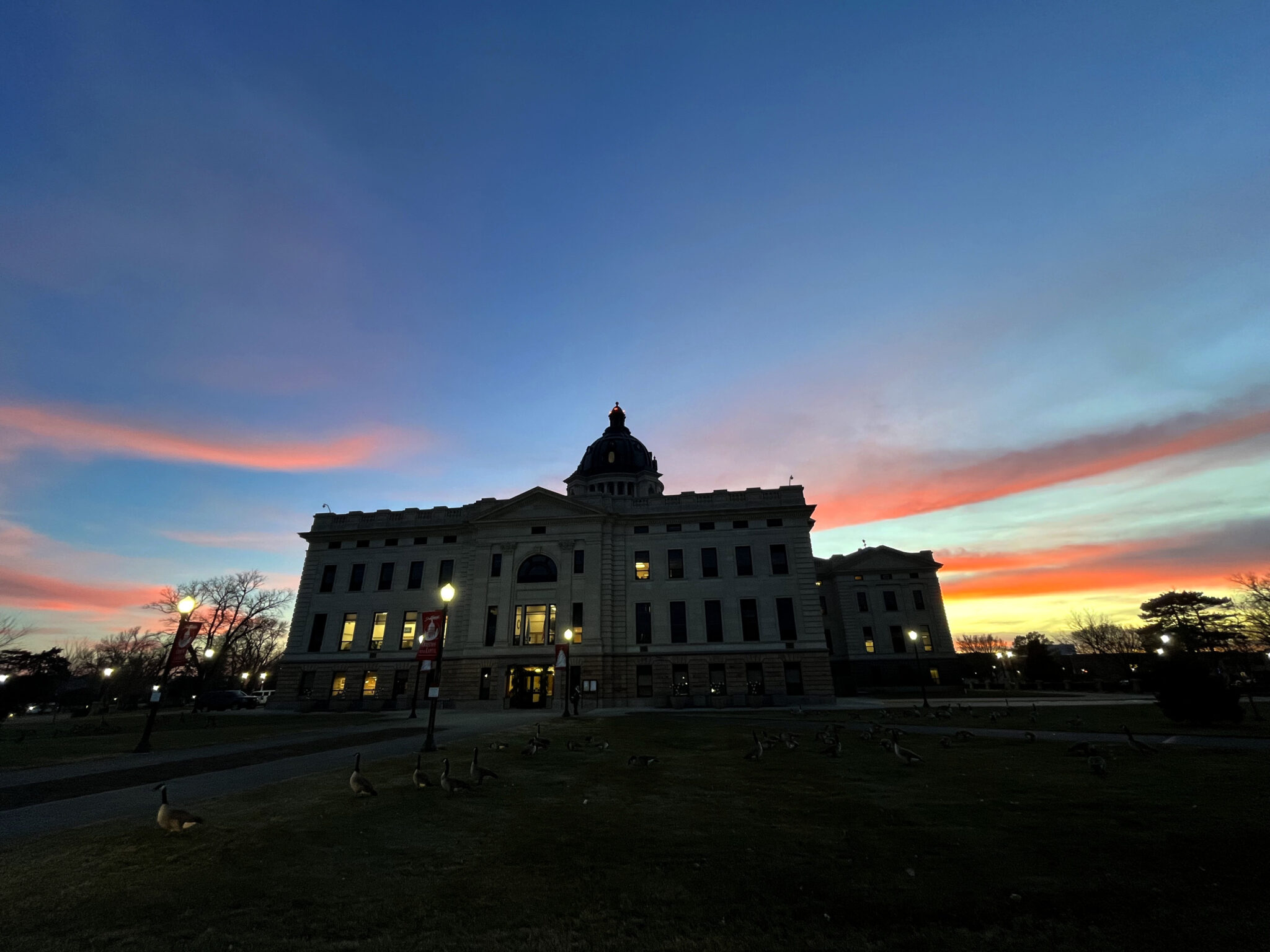
John Hult, Makenzie Huber, Joshua Haiar, South Dakota Searchlight – Lawmakers arrived in Pierre for the 99th session of the South Dakota Legislature earlier this month with an apparent will to challenge assumptions about the sluggish speed of government.
Things are moving more quickly, as columnist Dana Hess points out – and celebrates – in his latest South Dakota Searchlight commentary.
We can look to the legislative package from Attorney General Marty Jackley for a touchpoint on the pace of 2024.
“As of Thursday afternoon,” a Thursday news release from Jackley’s office read, “all five bills in the package have either been approved by one or both chambers. One bill has already passed both chambers and is awaiting the governor’s signature.”
That bill, Senate Bill 24, hikes the maximum price for a drug patch from $50 to $70 for those ordered by a court to wear one through the state’s 24/7 sobriety program.
The others criminalize a drug called xylazine, adjust language on removal from the state’s sex offender registry and allow deputy state’s attorneys to serve on the state’s Open Meetings Commission. Jackley also supported a bill from Sen. David Wheeler, R-Huron, that would prohibit the possession of artificial intelligence-generated child pornography. Jackley had a bill to do that in his legislative package, but agreed to defer to Wheeler, whose bill does that but also adds mandatory minimums for child porn offenders.
In all, 27 bills have already passed both legislative chambers and will now head to Gov. Kristi Noem’s desk for her consideration. Lawmakers had introduced a total of 422 bills or resolutions as of Friday afternoon. The Legislature just finished the third week of its nine-week session.
South Dakota Searchlight reports on dozens of bills during the session. Below is a summary of action taken on some of those bills since the last time we wrote about them.








Medicaid work requirements
A resolution that would ask voters to decide if the state can impose work requirements on some Medicaid recipients passed out of a Senate committee on Wednesday and sailed out of the full Senate the next day on a 28-4 vote. It now heads to the House.
Medical marijuana
One of several medical marijuana bills, a House bill to notify medical cannabis users of the threat to gun rights that marijuana use might present, is one Senate vote away from the governor’s desk. A few other medical marijuana bills cleared the Senate on their way to the House. The one that had marijuana advocates most worried didn’t make it, though. The bill to require patients to work only with their primary care doctor, or through a referral from that doctor, to get pot cards didn’t make it out of the Senate Judiciary Committee.
Housing infrastructure fix for tribes
House Bill 1041 is a fix to a $200 million housing infrastructure program approved last year. In its 2023 iteration, the program unintentionally barred tribal governments from participation. HB 1041 opens it up to tribes. It has passed both chambers and awaits the governor’s signature.
Criminal diversion
Senate Bill 47 would triple the dollars flowing to counties for successfully moving kids through diversion programs that keep them out of the court system. It had some opposition in the the House Judiciary Committee, but still passed 8-3. It’s now headed for House Appropriations for a look at its fiscal impact.
State flag
Introduced by Sen. Reynold Nesiba, D-Sioux Falls, last week is legislation that would establish a process to revamp South Dakota’s state flag. The bill is scheduled for a hearing in the Senate State Affairs Committee on Monday. The senator told South Dakota Searchlight that he believes a new flag design could raise awareness of South Dakota, boosting tourism and out-of-state workers.
Hunting/fishing residency
Senate Bill 54 would impose stricter criteria for resident hunting and fishing licenses. It passed the Senate and a House committee and now awaits a vote by the entire House of Representatives. The bill says people would lose their resident status if they apply for a resident license, register to vote or become a resident in another state, or if they reside outside of South Dakota for a total of 180 days in a year. Plus, the bill would put into statute that possessing a mailing address in South Dakota, owning property or a business, or being employed in the state is not adequate proof of residency.
Lithium mining tax
A bill to impose a tax on lithium mining passed the House 57-9 on Monday after clearing a House committee earlier. It now goes to the Senate Agriculture and Natural Resources Committee. The bill would classify South Dakota lithium as a precious metal – like gold and silver – and place a 10% tax on company profits from lithium mining. Companies are exploring for lithium in the Black Hills to feed the growing need for lithium-based batteries in electric vehicles and devices.
